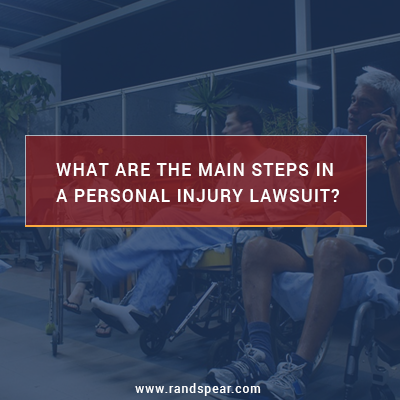What Is A Workers’ Compensation Claim?
Generally, workers’ compensation is a layer of protection for employees who may suffer an occupational injury. According to AllLaw.com, any employee injured on the job is entitled to workers’ compensation benefits, with some very limited exceptions. The compensation earned from workers’ compensation helps the injured employee pay for the expenses surrounding their injuries, such as medical bills and wage replacement. Below is some good information focusing on work injury cases, including differentiating workers’ compensation claims vs personal injury claims.

HOW WORKERS’ COMPENSATION CLAIMS DIFFER FROM PERSONAL INJURY CLAIMS
While most personal injury attorneys handle workers’ compensation cases, there are differences between workers’ compensation and personal injury claims. Proving fault drives a personal injury case. To qualify for workers’ compensation, it is not required to demonstrate negligence or fault. Even if your own carelessness caused a work accident, you may still be entitled to workers’ compensation.
Businesses protect employees injured on the job by using workers’ compensation. Due to this, you cannot sue your employer for a workplace accident. Employers protect their workers with disability benefits, including compensation for medical bills and weekly benefits. In a personal injury claim, the injured party only receives compensation by proving another party is responsible for causing injuries.
Since workers’ compensation is not a lawsuit against an employer, the injured employee cannot collect damages for any pain and suffering related to their injury. The list of damages collected in workers’ compensation claims vs personal injury claims is very different. According to AllLaw.com, “In a workers’ compensation case, you can only receive weekly compensation, permanent impairment benefits, medical bills, and vocational rehabilitation.” Damages for a personal injury claim include lost wages, medical bills, future medical expenses, future lost wages, and pain and suffering.
IMPORTANT INFORMATION TO CONSIDER FOLLOWING A WORKPLACE ACCIDENT
Immediately following a work injury, an injured employee must report the incident. An incident report and claim form document the accident. The injured party submits them to their immediate supervisor. Submitting these forms mark the start of the workers’ compensation claims process. This process involves regular communication between the injured employee, the employer, and the workers’ compensation insurance company. According to AllLaw.com, you should report any accident in which you’re involved on the job, whether or not you believe you’re injured.
The workers’ compensation process continues with the insurance company investigating the submitted injury claim. This process involves the injured party getting a medical examination. After the accident, schedule a doctor’s appointment as soon as possible. Even if you suffered no immediate injuries, an appointment with a medical professional is important. Injuries from an accident are sometimes not immediately apparent.

TYPES OF WORKERS’ COMPENSATION CLAIMS
Most states require workers’ compensation, meaning employers are responsible for providing it to their employees. These benefits are security blankets to help employees by covering medical bills, disability benefits, vocational rehabilitation, and funeral services. There are four types of workers’ compensation.
- Medical Treatment Only – The employee’s injuries are not serious, so they do not miss any time at work. Since the workplace injury only caused medical damages, the employer helps with necessary medical treatment related to the injury.
- Medical Treatment with Lost Time from Work – The injuries from the work accident are significant, causing the employee to miss time from work. The employee also needs medical treatment. In this workers’ comp type, the employer pays weekly income benefits until the employee returns to work. The employer also pays injury-related medical treatment.
- Medical Treatment & Injuries That Prevent Employees from Returning to Their Pre-Injury Job – The injury severity in this workers’ compensation type causes the employee to be unable to return to their previous job. The worker receives medical treatment following the injury but may have difficulty finding another job due to their injuries. Due to the circumstances, the worker is eligible for weekly benefits.
- Medical Treatment & Injuries That Prevent the Employee from Returning to Any Type of Work – The injuries are so severe that the affected employee cannot return to any work after a work accident. This workers’ compensation type usually offers no ceiling on the life span of the income benefits that the injured worker can receive.

WE CAN HELP FOLLOWING A WORKPLACE ACCIDENT
With workers’ compensation, each state has its own rules, so working with a personal injury attorney is important, because of their knowledge of state laws. Our experienced legal team at Spear Greenfield has over 200 years of experience, which includes work injury claims. Our law firm’s initial consultation is free, because we want to help you learn more about your options following a work injury and determine the benefits that you should receive. Schedule a free consultation by calling us or completing our scheduling form.
Call or text (215) 985-2424 or complete a Free Case Evaluation form











